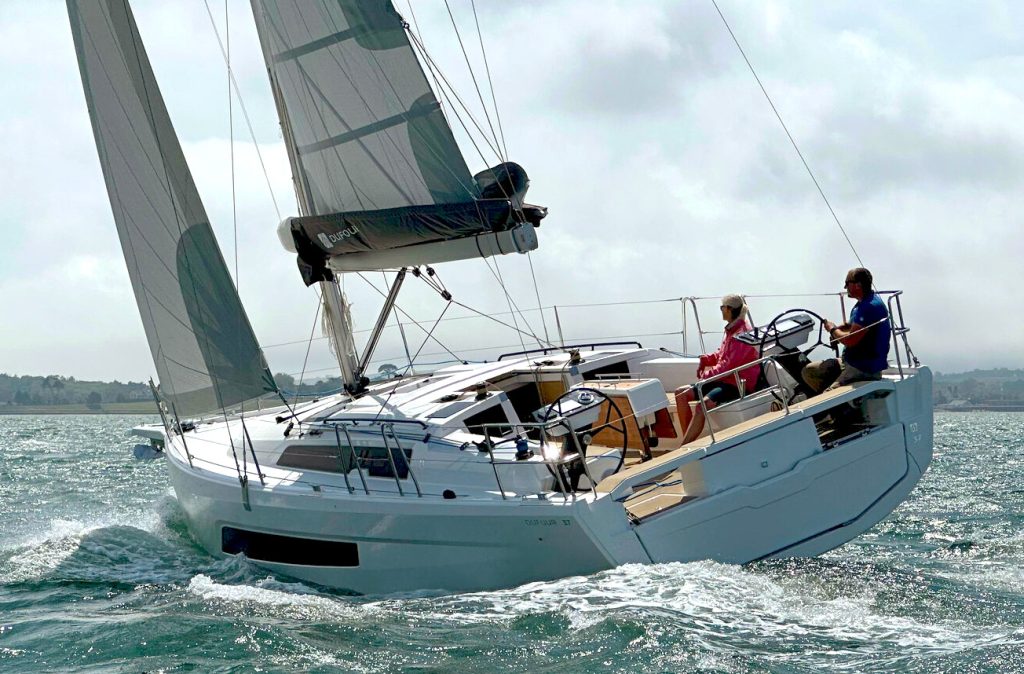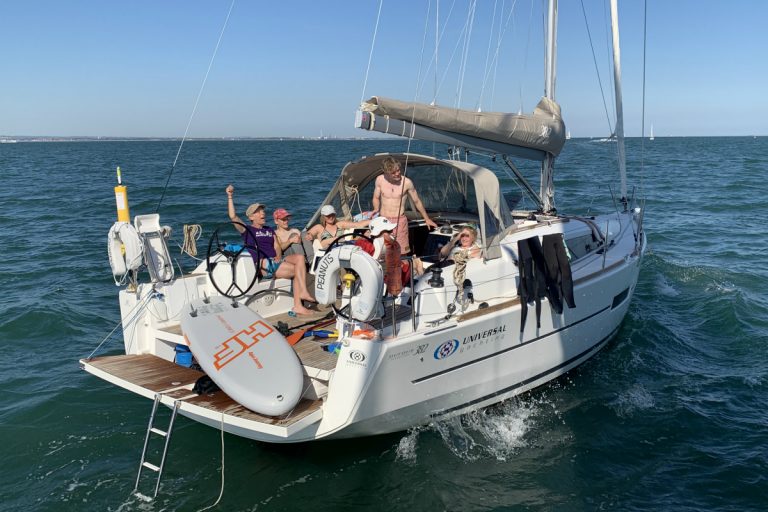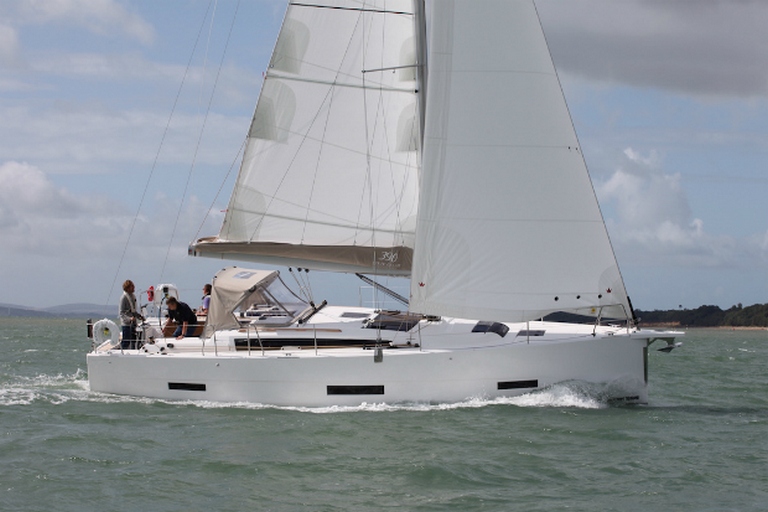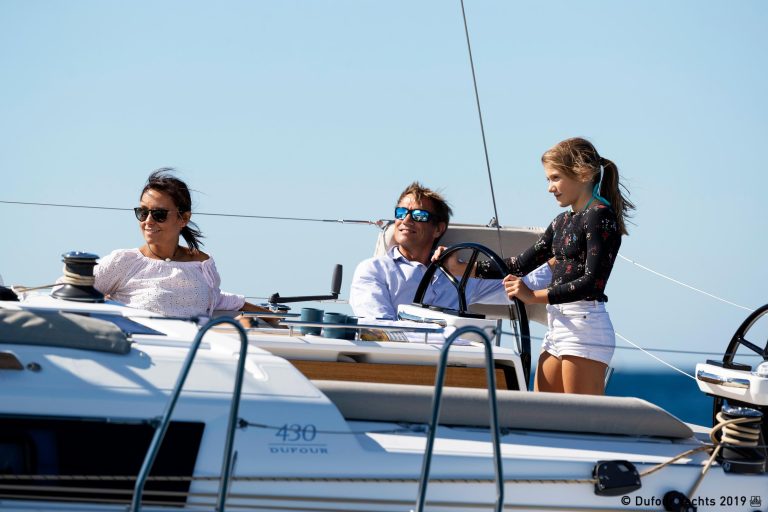Our Charter choices for the Solent
 We have a fantastic fleet of new Dufour Yachts available for charter in the Solent.
We have a fantastic fleet of new Dufour Yachts available for charter in the Solent.
Dufour 37 (2025)
Dufour 41 (2025)
The Solent is a spectacular sailing destination, making it a prime choice for a yacht charter so whether you’re planning a weekend escape or a longer trip, the Solent has an abundance of places to explore.
Our yachts are conveniently based at Mercury Yacht Harbour on the River Hamble.
Depending on your plans and your experience there are a number of different options open to you if you are looking into chartering a yacht.
Bareboat Yacht Charter
Bareboat Yacht Charters are where you take full responsibility for the yacht and the crew onboard, with the freedom to explore the sailing area as you wish.We naturally expect a level of experience suitable for the size of yacht, expected conditions and the specific areas that you intend to visit.
To ensure safety and competence, we typically request evidence of your sailing abilities, which can include a detailed sailing CV outlining your experience and any formal qualifications, such as a Day Skipper or Coastal Skipper certification.
Ensure you are comfortable with your experience as operating outside of your comfort zone is likely to end in tears. Know your own limits and don’t forget the limits of your crew !!!
Skippered Yacht Charter
This is a fantastic option for those who want to enjoy the experience of sailing without the accompanying responsibilities that come with operating the yacht.By hiring a skipper, you can relax and fully immerse yourself in the pleasures of chartering a yacht, making it an excellent choice for beginners, individuals venturing into unfamiliar waters, or anyone who prefers a worry-free sailing experience.
Skippered yacht charters are particularly popular for day trips, often used for hospitality or entertainment purposes, allowing the host to focus on their guests.
If you’re sailing in a new area, having a skipper can help you discover some of the best locations. Keep in mind that you don’t necessarily need the skipper for the entire duration of your charter.
Skippered Yacht CharterSkippered Sailing Days
Sailing days are offered between April and September, giving you a fantastic chance to enjoy a delightful day of yacht sailing in the picturesque and sheltered waters of the Solent.These outings are designed for anyone looking for a fun day and relaxed day on the water, with no sailing experience required.
Whether you’re interested in actively participating or prefer to sit back and relax while enjoying the scenery, you have the freedom to engage at your own comfort level knowing our skilled and friendly skipper will be onboard
Come on your own or with a group of friends. Bring your own picnic style lunch and we provide tea, coffee, and mineral water onboard.









